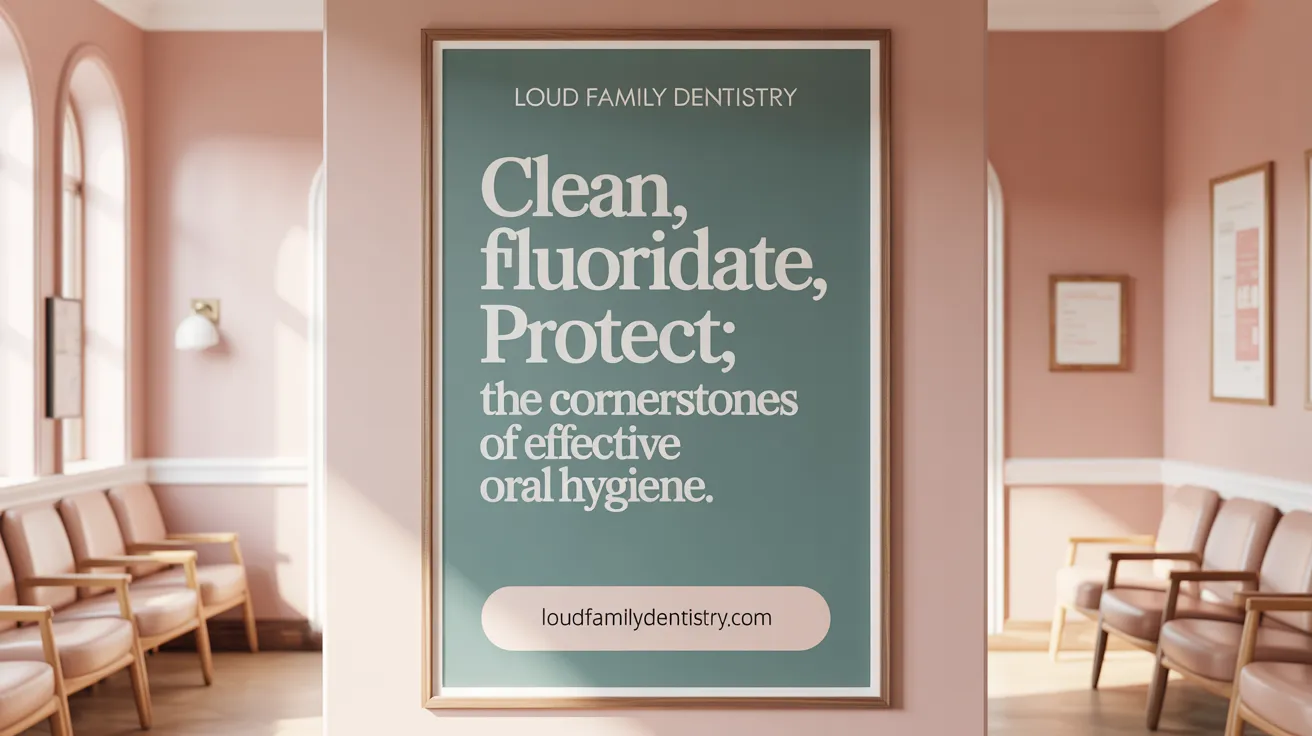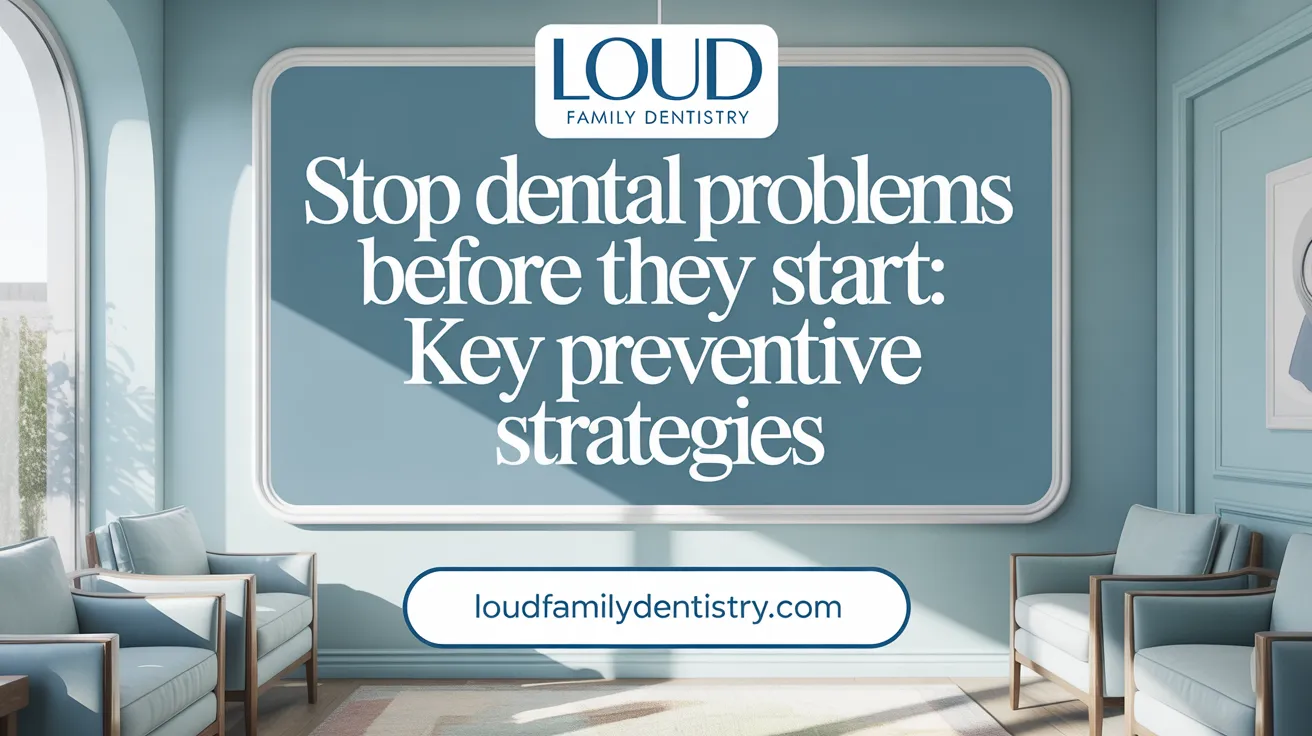Understanding Preventive Dental Care for All Ages
Maintaining healthy teeth and gums is a lifelong journey that requires consistent effort and knowledge. Preventive dental care is the foundation for avoiding oral diseases and ensuring a bright smile, good nutrition, and overall wellness. This article explores comprehensive dental care principles applicable to all age groups, effective home care routines, professional interventions, nutrition, and specialized strategies tailored to different life stages and health conditions.
Core Principles of Preventive Dental Care Across All Ages

What are the core principles of preventive dental care that apply to all age groups?
Preventive dental care hinges on a consistent foundation of good oral hygiene practices and regular professional care. At its core, maintaining excellent oral health involves brushing teeth twice daily with fluoride toothpaste benefits, using a soft-bristled toothbrush, and cleaning between teeth with floss or interdental devices every day. These routines help remove plaque, a sticky film of bacteria that causes tooth decay and gum disease.
In addition to proper brushing and flossing, a balanced diet low in sugars and starchy snacks is critical. Limiting sugary foods reduces bacteria feeding on acids that can erode enamel. Using fluoride-rich products and receiving fluoride treatments strengthen teeth and help resist decay. Routine dental visits, ideally every six months, provide opportunities for professional cleanings, early detection of issues, and the application of preventive measures such as sealants or topical fluoride varnish.
Early adoption of oral hygiene habits in childhood sets the stage for a lifetime of good dental health. Families should instill routines like supervised brushing and introduce flossing when two teeth touch. For older adults, maintaining these routines alongside proper care of dentures or implants remains essential.
Lifestyle choices also significantly impact oral health. Avoiding tobacco products reduces the risk of gum disease and oral cancers. Moderating alcohol intake, managing systemic conditions like diabetes, and staying hydrated are important complementary measures.
Combining home oral care, regular professional examinations, and healthy lifestyle choices creates a comprehensive approach to preventing dental disease. This proactive strategy not only preserves teeth and gums but also minimizes systemic health problems related to oral health, such as cardiovascular diseases, diabetes, and respiratory infections.
By integrating these principles across all ages, individuals can enjoy healthier, stronger teeth and fewer dental emergencies, all while fostering overall well-being.
Effective Oral Hygiene Practices and the Role of Fluoride

What are effective oral hygiene practices including brushing, flossing, and dietary habits to maintain healthy teeth?
Maintaining healthy teeth requires a consistent routine of proper oral hygiene practices. Effective practices include brushing teeth twice daily with fluoride toothpaste, ensuring to use a soft-bristled toothbrush held at a 45-degree angle toward the gumline. Gentle, circular motions help remove plaque and bacteria efficiently. Daily flossing is equally important for cleaning between teeth and under the gumline, preventing gum disease and cavities. Techniques such as wrapping the floss in a 'C' shape around each tooth and sliding it gently beneath the gumline are recommended.
In addition to brushing and flossing, cleaning the tongue with a tongue scraper or toothbrush reduces bacteria and fresher breath. Dietary habits also play a role; limiting sugary and acidic foods and drinks minimizes acid attacks that weaken enamel. Managing medical conditions and avoiding tobacco and excessive alcohol consumption further support oral health. Regular dental visits every six months allow for professional cleaning, early problem detection, and personalized advice.
Other habits like replacing your toothbrush every three to four months and using fluoride-containing products contribute to effective and sustained oral hygiene.
How does fluoride contribute to preventive dental care and what role do oral health products play in maintaining oral health?
Fluoride is a vital component of preventive dental care due to its ability to strengthen tooth enamel. It helps make teeth more resistant to acid attacks from bacteria and sugars in the mouth, significantly reducing the risk of cavities. Fluoride also promotes remineralization, repairing early enamel damage and reversing initial decay.
Community water fluoridation is a proven public health measure that has contributed to substantial declines in dental caries across populations. Besides water, numerous oral health products like fluoride toothpaste, mouth rinses, gels, varnishes, and professional fluoride treatments deliver topical fluoride directly to teeth. These products are endorsed by dental associations and often bear the ADA Seal of Acceptance, which certifies their safety and effectiveness.
By incorporating fluoride into daily routines and professional treatments, individuals can effectively protect their teeth from decay and improve overall oral health. Proper use, including supervision for children and managing fluoride exposure for at-risk populations, maximizes benefits.
More information about effective oral hygiene practices and fluoride's role can be found by searching "effective oral hygiene practices fluoride role." Regular use of these practices is essential in preventing dental diseases and maintaining a healthy, attractive smile for life.
Nutritional Strategies to Support Strong Teeth and Healthy Gums
 Maintaining healthy teeth and gums depends heavily on proper nutrition. A balanced diet rich in essential nutrients such as calcium, phosphorus, and vitamins C and D helps strengthen enamel and support tissue health. Dairy products like cheese, milk, and yogurt provide calcium, while leafy greens like spinach and kale offer additional mineral benefits. Foods like strawberries, apples, and carrots are not only nutritious but also help clean teeth naturally and stimulate saliva, which neutralizes acids and fights bacteria.
Maintaining healthy teeth and gums depends heavily on proper nutrition. A balanced diet rich in essential nutrients such as calcium, phosphorus, and vitamins C and D helps strengthen enamel and support tissue health. Dairy products like cheese, milk, and yogurt provide calcium, while leafy greens like spinach and kale offer additional mineral benefits. Foods like strawberries, apples, and carrots are not only nutritious but also help clean teeth naturally and stimulate saliva, which neutralizes acids and fights bacteria.
Limiting sugary, sticky, and acidic foods and drinks—especially between meals—is vital in preventing tooth decay and enamel erosion. Sipping fluoridated water throughout the day adds an extra layer of protection by helping remineralize teeth, making them more resistant to decay. Chewing sugar-free gum also promotes saliva flow, which aids in neutralizing acids and repairing minor enamel damage.
In addition to dietary habits, consistent oral hygiene practices—such as brushing twice daily with fluoride toothpaste and daily flossing—are crucial to maintaining optimal dental health. These combined strategies create an effective approach to ensuring strong teeth and healthy gums for a lifetime.
Tailoring Dental Care: Recommendations for Children, Adults, and Seniors

What dental care considerations are recommended for different life stages such as children, adults, and seniors?
Dental care needs evolve throughout life, requiring tailored approaches to ensure optimal oral health.
Children should begin oral care before first tooth, even before their first tooth emerges, by wiping gums with a soft, damp cloth. Once teeth appear, introducing a soft-bristled toothbrush for children and a rice-sized amount of fluoride toothpaste helps prevent cavities. Regular dental visits should start by their first birthday to monitor development, apply preventive treatments like dental sealants as prevention and fluoride varnishes, and educate caregivers on good habits. It's also important to avoid sugary foods and drinks, especially before bedtime, to prevent early decay.
Adults need to focus on maintaining healthy gums, preventing dental disease, and managing restorations like fillings, crowns, or implants. Good daily practices include brushing teeth twice a day with fluoride toothpaste, daily flossing, and routine check-ups, typically every six months. Addressing lifestyle factors such as smoking cessation and moderating alcohol intake, and managing systemic conditions like diabetes are vital. Adults should also be aware of cosmetic dental needs, like whitening or orthodontics, and treat issues like teeth grinding.
Seniors face unique challenges, including dry mouth caused by medications, receding gums, and increased risk of oral cancer. Proper denture care, including daily cleaning and nighttime removal, helps prevent infections and gum irritation. Hydration and a nutritious diet support overall oral health. Regular screenings for oral cancer are essential, along with managing medical conditions that impact oral tissues. Tailored advice from dental professionals ensures seniors preserve natural teeth if possible and maintain their ability to eat, speak, and socialize comfortably.
Overall, consistent, age-appropriate oral hygiene routines, coupled with routine professional visits, are critical for lifelong dental health. These practices help preserve function, appearance, and overall well-being at every stage of life.
Preventing Common Dental Issues: Cavities, Gum Disease, and Oral Infections
 Maintaining good oral health is crucial in preventing common dental problems such as cavities, gum disease, and oral infections. A primary strategy involves consistent plaque control through effective brushing and flossing. Dentists recommend brushing at least twice a day with fluoride toothpaste, using gentle circular motions at a 45-degree angle toward the gumline. Flossing daily helps remove debris and plaque from between teeth, areas that toothbrushes cannot reach.
Maintaining good oral health is crucial in preventing common dental problems such as cavities, gum disease, and oral infections. A primary strategy involves consistent plaque control through effective brushing and flossing. Dentists recommend brushing at least twice a day with fluoride toothpaste, using gentle circular motions at a 45-degree angle toward the gumline. Flossing daily helps remove debris and plaque from between teeth, areas that toothbrushes cannot reach.
Regular professional cleanings are vital. Dental examinations and cleanings scheduled approximately every six months allow early detection of issues and removal of hardened plaque (tartar), which cannot be cleaned at home. These visits also include assessments for early signs of cavities and gum disease, with treatments like fluoride applications and sealants providing additional protection.
Using antimicrobial mouthwashes, especially those with fluoride or sealants, can reduce bacteria and strengthen enamel. Sealants, particularly on molars, act as a barrier against decay in deep grooves and fissures. Moreover, community-level measures like fluoridated water supply, school-based dental sealant programs, and routine oral cancer screenings play essential roles in broader public health integration.
Avoiding harmful habits such as tobacco use and excessive alcohol consumption significantly decreases risks. A balanced diet low in sugar and processed foods, with an emphasis on nutrient-rich fruits, vegetables, and dairy supports oral tissue health and reduces acid attacks on teeth.
In summary, a comprehensive approach combining daily personal care, professional dental services, and community health initiatives is most effective to prevent oral diseases. Seeing the dentist regularly, practicing good hygiene, and adopting healthy lifestyle choices help maintain strong, healthy teeth and gums for life.
Oral Health’s Impact on Overall Wellness and Managing Special Conditions
How does oral health impact overall health and wellness?
Good oral health is more than just a bright smile—it plays a vital role in maintaining overall well-being. When oral health is optimal, it helps reduce the risk of systemic diseases such as heart disease, diabetes, respiratory infections like pneumonia, and complications in pregnancy. This is because healthy gums and teeth lower the bacteria and inflammation that can enter the bloodstream, affecting other parts of the body.
Practicing proper oral hygiene, including brushing twice daily with fluoride toothpaste, flossing daily, eating nutritious foods low in sugar, and attending routine dental exams, supports both oral and general health. Untreated gum disease and cavities have been linked to increased risks of chronic illnesses and even certain cancers. Addressing social factors like access to dental care and public health education is essential to reduce health disparities.
Integrating oral health care into overall health strategies not only improves quality of life but also reduces long-term healthcare costs. Early detection and treatment of dental issues, combined with education about lifestyle choices, are powerful tools in promoting systemic health and wellness.
What tips can help maintain oral health during special conditions or health concerns like dry mouth or Sjögren’s disease?
For individuals with dry mouth or conditions like Sjögren’s disease, maintaining oral health requires specific strategies. Staying well-hydrated is crucial; sipping water frequently helps combat dryness and washes away harmful bacteria.
Stimulating saliva production with sugar-free gum or lozenges containing xylitol can provide relief, while over-the-counter saliva substitutes, such as Biotene, help moisturize the mouth. It's important to practice meticulous oral hygiene—brushing with fluoride toothpaste twice daily, flossing carefully, and avoiding sugary or acidic foods that can increase decay risk.
Additional supportive measures include applying lip ointments to prevent chapping, avoiding brushing immediately after consuming acidic foods or drinks to protect enamel, and using a humidifier at home to keep the environment moist.
Regular dental visits are vital; dentists can recommend tailored treatments, prescribe medications that stimulate saliva, and suggest other measures to keep the mouth comfortable and healthy. An interdisciplinary approach involving healthcare providers ensures that each individual’s unique needs are addressed effectively.
Maintaining Healthy Teeth and Gums Throughout Life
Preventive dental care is a lifelong commitment that combines appropriate daily oral hygiene practices, healthy dietary habits, routine professional care, and lifestyle adjustments tailored to individual life stages and health conditions. By prioritizing brushing and flossing, utilizing fluoride and other protective measures, attending regular dental appointments, and adopting supportive nutrition and behaviors, individuals can significantly reduce the risk of dental diseases and enhance overall wellness. Empowering all age groups with knowledge and access to quality dental services ensures not only healthy teeth and gums but also contributes to broader health benefits and improved quality of life.
